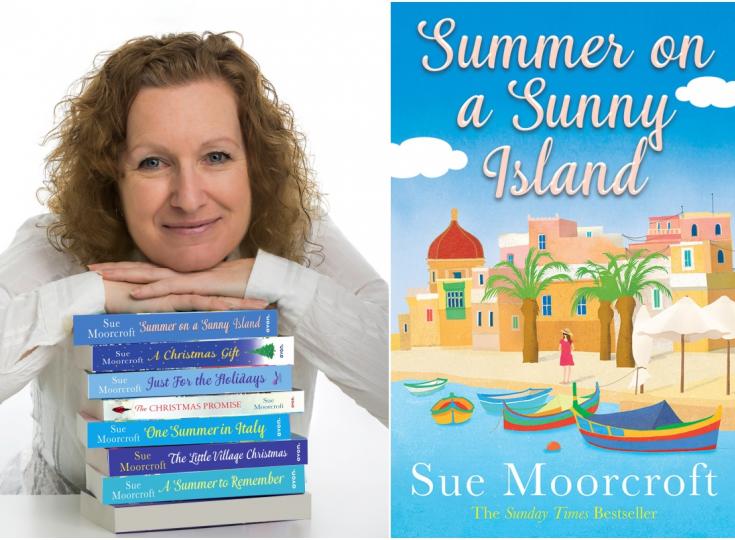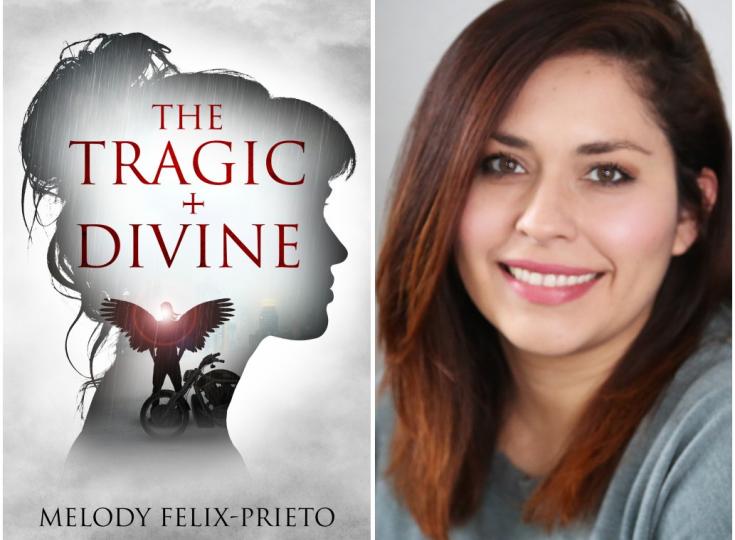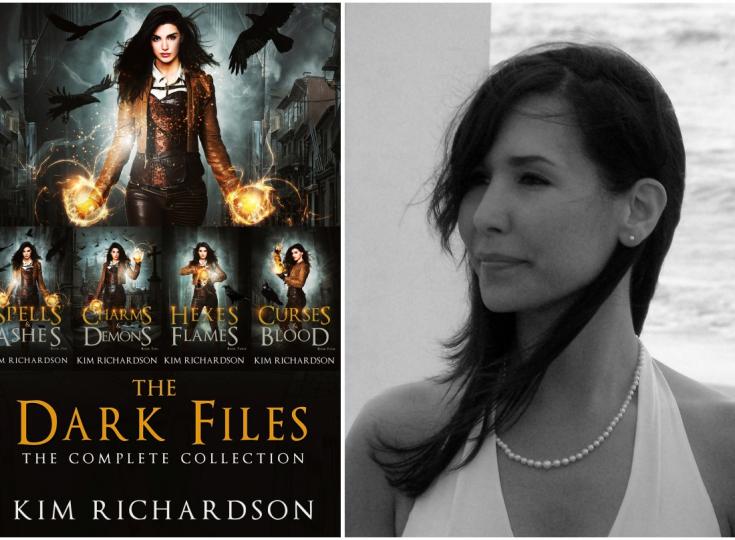Dan Grant - A Science/medical Thriller that Reveals a Radical Breakthrough
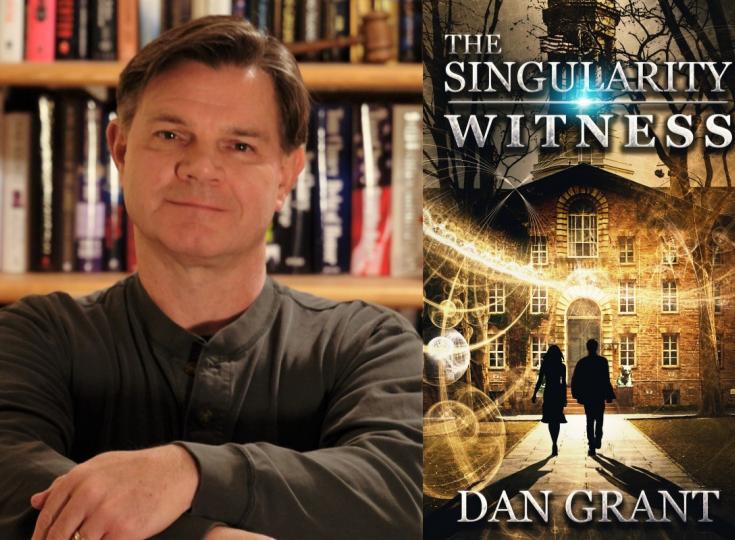
Dan loves intriguing tales that weave science, medicine, history, or technology into the fabric of the drama. The Singularity Witness follows that style and includes a creative backdrop. He's also a licensed professional engineer with masters’ in education and English with an emphasis in creative writing. His engineering endeavors have provided unique opportunities to work with a variety medical and technological applications, and get behind the scenes at military facilities. Those experiences add threads to conspiracies and form a broader storytelling tapestry. As our Author of the Day, Dan tells us all about his book, The Singularity Witness.
Please give us a short introduction to what The Singularity Witness is about.
The Singularity Witness is science/medical thriller that reveals a radical breakthrough and that intersection of science and medicine. What happens when that technology ushers in an ominous future? Governments and corporations will kill to control it. So murder and abduction are just the beginning.
When a clandestine research lab disposes of its test subject and kidnaps a U.S. Senator to protect its secrets, those events trigger a federal investigation. The covert program requires the services of Thomas Parker, a Princeton University professor and cutting-edge neurologist, to deliver its sentinel achievement. And FBI Special Agent Kate Morgan needs Parker to help her infiltrate the secret lab and find the senator. Parker and Morgan find themselves in a place where you can’t trust anyone. No sacrifice is too great for a cause that changes the world forever.
Parker and Morgan are faced with the dilemma of advancing the technology in order to solve the senator’s abduction, save the singularity witness and others, and find a way to survive.
What inspired you to write this book?
The concept behind The Singularity Witness came from my master’s thesis. That original work went into the preverbal desk drawer when my engineering career took off. Years later, I was working on a cutting-edge surgical suite for Roswell Park Comprehensive Cancer Center and I asked the neurosurgeon about his work. The doctor was more than generous with his time and told me how this new technology would help make a difference in saving people’s lives. His energy and enthusiasm became the core of a remolded Thomas Parker.
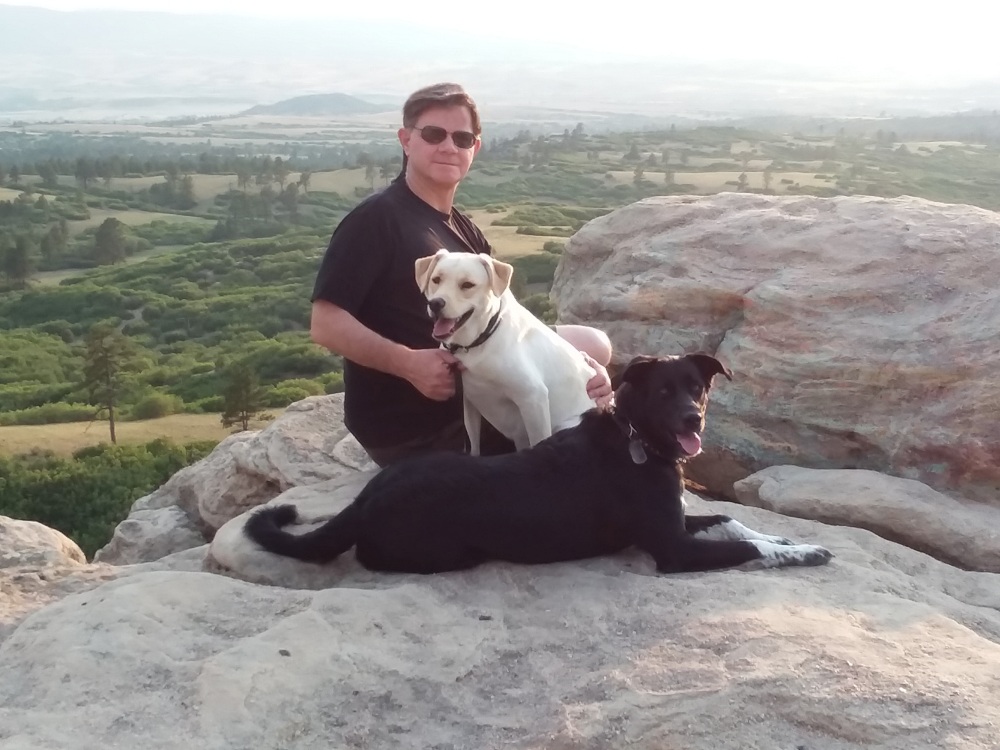
The Singularity Witness explores an intersection of science and medical research. How much research did you do to make the science realistic?
I want to be as realistic as possible and want to take readers to different worlds, places that exhibit a bit of awe (whether that is the actual destinations, research locations, secret military complexes, or medical labs). I enjoy stories that make learning about stuff fun—the fast-paced aspects of thrillers do that. From my college thesis to completion, I reviewed over 400 resources, and most of that content never made it into the story. For those that want to peek behind the curtain, I have a dedicated webpage that lists some of the destinations and research. The link is in the book but can be accessed at http://dangrantbooks.com/singularity-witness/.
Tell us more about Kate Morgan. What makes her tick?
FBI Special Agent Kate Morgan came into the story during major revisions. She’s a strong-willed co-hero with her own agenda (sent to find a missing senator). By training, she’s a medical doctor that has transitioned into forensics (after a nightmare experience) and went to work for the bureau. She’s not much of a field agent and has to work through those challenges. In Princeton, she finds herself out of her element and faced with making tough decisions. At times, she’s at odds with Thomas Parker. She was such a great character to work with that my parallel catch-me-if-you-can thriller showcases Kate in Thirteen Across.
Readers say The Singularity Witness had them on the edge of their seats. How did you pull this off?
Because I have a master’s in English with an emphasis in creative writing, creating scenes, narrative, and characters was never that hard. But I did have to learn how to write thrillers, learning those storytelling techniques and finding my narrative voice—that took a lot of practice. Working with an editor who works with New York Times authors has helped trim down the extraneous content and focus on story pace. My goal in thrillers is a have the reader ask what happens next, how does the character get out of that jam, is the villain really going to win?
Besides writing, what other secret skills do you have?
Secrets? Maybe. Secret skills? Probably not so much. But I enjoy talking with people, learning about them and their jobs, what they do for a living. Two things help writers: one, have a great imagination, and, two, be inquisitive and see the world differently. “This world is but a canvas to our imagination,” Henry David Thoreau.
How has your engineering work influenced your writing?
The great thing about my diverse tenure as an engineer is that I’ve been exposed to different aspects of the world that many people don’t get a chance to see. I’ve worked on military projects in some really cool (even cold) places, worked with aspects of technology, and in the field of research, labs, and medicine. Since thrillers are often built around conspiracies, my engineering experience has given me a vast toolbox to draw upon.
Why did you pick Princeton University as a backdrop for The Singularity Witness?
During major rewrites, the town of Princeton and the university became a focus for placing characters and a research setting. It’s a wonderful location, filled with history and character. I scout my story locations and found this area in New Jersey to be just magical for the setting. Thomas Parker’s recruiter calls him the next Einstein and since Albert Einstein lived in Princeton and taught at the university during the later years of his life that added extra value in placing the story there.
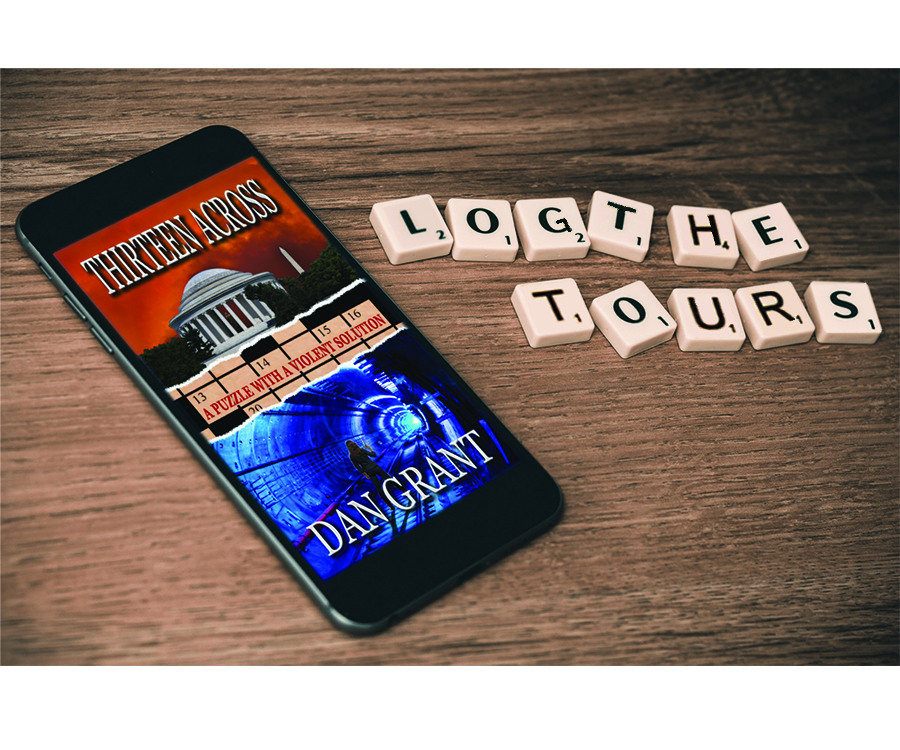
When did you decide to become a writer?
I always seemed to have a storytelling muse. I enrolled at Northern Arizona University later than the average student, having started in my branch of engineering before attending college. Once at college, I loved learning about things so I took a lot of classes that had nothing to do with engineering. I took film, drama, choir, photo journalism, business, and technical writing. My technical writing professor consulted part-time for the CIA and he made it sound so cool. When I had a chance to go to grad school, I reached out to a creative writing professor. After grad school, my engineering career got back on track and it took longer than I wanted to bring the stories to life. But the stories are better having waited to be rewritten and polished to be better stories.
Is there an underlying message you wish to relay about basic human nature through your characters?
As human beings (at some time during our lives) we’re often faced with spiritual, philospophical, emotional, and physical tests if not trials. As the current world around us can attest, there is evil and greed that resides inside the hearts of other human beings. In The Singularity Witness I used a few brush strokes of narrative to highlight the historical and current callousness of the human species. Greed and a craving of power fuel a great deal of evil. As in real life, story characters have flaws and struggles of their own. Sometimes they succeed in becoming a better version of themselves, other times they fail. The villains of a story are worthy obstacles to our heroes. The struggle between right and wrong is not always clear and that adds to the drama. Conflict of the human heart adds additional depth and value to explore with our characters. Even in tragedy, we want to root for our characters and triumph even though we know that may not be the case.
What are you working on right now?
Thirteen Across is out this summer—a parallel thriller based on a puzzle and features Kate Morgan 30 days after The Singularity Witness. She called to testify before the U.S. Senate but Phillip Barnes has different plans for her when he makes his attacks on the nation’s capital personal. Seven stops. Seven sets of clues. A race against time. Covert research. A real-life puzzle expert was fictionalized in the story and brought in to help work the case. If she survives, the clock ticks toward midnight as Kate fights to save seven victims and arrive at a place to atone for her past sins.
Later this year, The Singularity Transfer brings Thomas Parker and Kate Morgan back together and they’re forced to face the reality that the radical technology that they helped create is back in play between different forces trying to acquire it.
Kate Morgan will return in a sequel to Thirteen Across, which has yet to be titled.
Where can our readers discover more of your work or interact with you?
More about me can be found at my website DanGrantBooks.com and on Facebook at http://Facebook.com/DanGrantAuthor.
